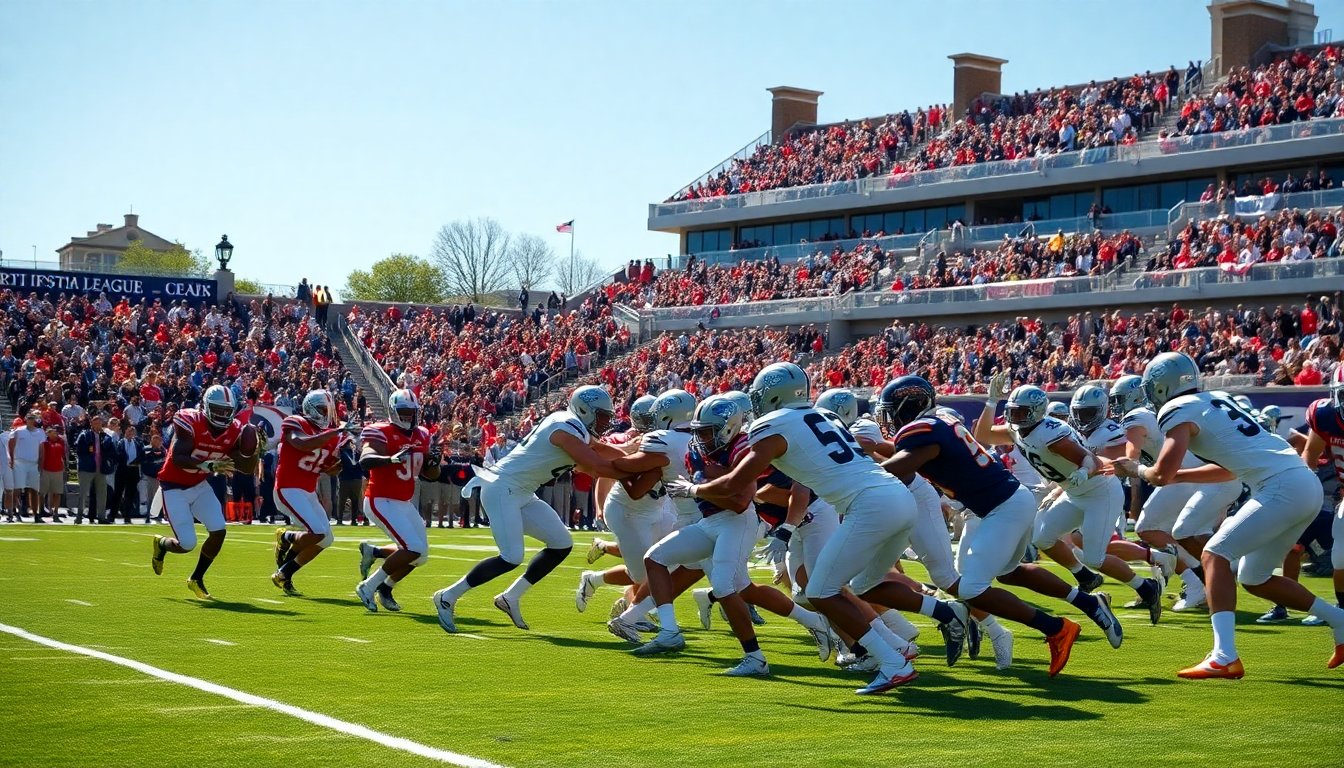Table of Contents
The world of Ivy League football is often dominated by the historic rivalry between Harvard and Yale, known as The Game. This season marks a pivotal change in the landscape of college football, as Ivy League teams are now allowed to compete in playoffs, creating new opportunities for a national title. While the anticipation surrounding the Harvard-Yale match remains high, it is crucial to examine the broader context of Ivy League football.
Traditionally, the Harvard-Yale game has served as the season’s grand finale, celebrated for its intense competition and historical significance. However, with the introduction of playoffs, the game evolves from a mere rivalry to a potential springboard for greater achievements.
The Harvard-Yale rivalry: a historical perspective
The Harvard-Yale football rivalry, which began in 1875, stands as one of the oldest rivalries in American college sports. This annual event symbolizes athletic prowess and embodies a deep cultural competition between two prestigious institutions. Although the outcome does not yield a physical trophy, its significance resonates across both campuses, igniting school spirit and alumni pride.
The significance of The Game
The Game has long been a rite of passage for graduating seniors, marking the conclusion of their college football careers. The atmosphere surrounding the weekend is electric, with various residential college teams from Yale and Harvard also competing, contributing to the festive spirit. This rivalry extends beyond the final score; it reflects a rich history characterized by academic competition and social interactions, fueling the passion of players and fans alike.
Over the years, both universities have produced notable athletes and influential figures. Yale leads the series with 71 wins to Harvard’s 61, alongside eight ties. Despite the competitive nature, former coaches from both sides have expressed camaraderie that transcends the field, underscoring the mutual respect that persists within the rivalry.
Shifting dynamics in Ivy League football
The recent decision to permit Ivy League teams to participate in playoffs marks a turning point in the conference’s history. Previously, the league avoided postseason play, which meant The Game held all the significance for teams and their seasons. With teams now competing for a national title, the stakes have increased, allowing for a broader interpretation of success in Ivy League football.
Impact on team strategies and culture
The introduction of playoffs will compel teams to adapt their strategies to navigate this evolving landscape. The competitive spirit that has long defined Ivy League football will likely transform, leading to a more dynamic approach to training, gameplay, and recruitment. As teams focus on the playoffs, fostering a culture of resilience and determination will be essential, emphasizing teamwork and skill development.
Moreover, the availability of playoff opportunities could reshape the perception of Ivy League football, extending beyond the Harvard-Yale rivalry. This shift opens avenues for showcasing the athletic talents of all Ivy League institutions, promoting a more inclusive approach to collegiate sports.
The cultural significance of Ivy League football
Beyond the field, Ivy League football embodies a rich cultural heritage that resonates within American society. These institutions have significantly influenced the sport, contributing to the rules and practices that define collegiate football today.
References to the Harvard-Yale rivalry permeate popular culture, appearing in literature, television, and film, which underscores its importance in American consciousness. The portrayal of this rivalry reflects not only the spirit of competition but also the social dynamics at play within these elite institutions.
Traditionally, the Harvard-Yale game has served as the season’s grand finale, celebrated for its intense competition and historical significance. However, with the introduction of playoffs, the game evolves from a mere rivalry to a potential springboard for greater achievements.0


